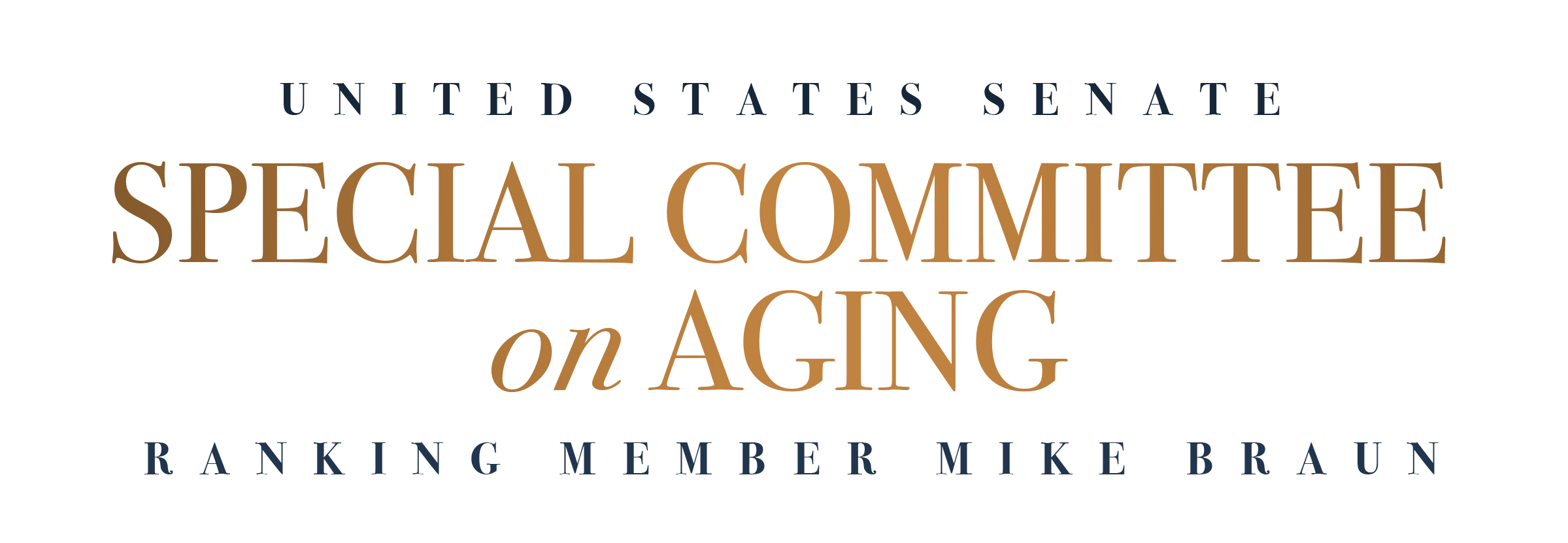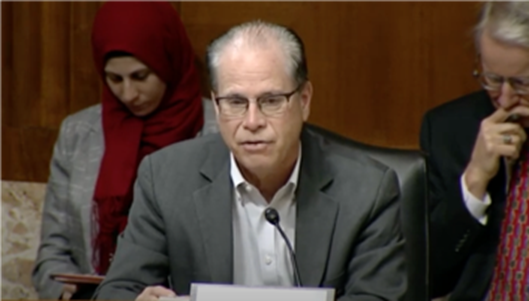"Federal government needs to make it EASIER for people looking to work, not HARDER"- Sen. Braun
FOR IMMEDIATE RELEASE
May 18, 2023
"Federal government needs to make it EASIER for people looking to work, not HARDER"- Sen. Braun
WASHINGTON—Today, Sen. Mike Braun, Ranking Member of the U.S. Special Committee on Aging, delivered the following opening remarks at the committee’s hearing on nursing homes titled, Residents at Risk: The Strained Nursing Home Inspection System and the Need to Improve Oversight, Transparency, and Accountability.
Sen. Braun also sent a letter today to the National Center for Health Statistics (NCHS) requesting the NCHS to improve its survey with respect to details about costs and facilities ownership to help Americans make better decisions for their own futures and those of their loved ones.
Read the letter here.
Remarks as prepared:
Thank you, Chairman Casey and our witnesses here today.
Aging Population & Workforce Shortages
For the first time in U.S. history, older adults are expected to outnumber children by 2034.
As our population ages, we are facing growing health care workforce shortages.
Indiana has 4,300 job openings for nurses; and is projected to need 5,000 more by 2031.
Nursing homes have not been spared from these shortages, leading to issues with patient care and overall quality.
My home state has worked to address this issue.
A law championed by Ivy Tech Community College and the Indiana Hospital Association removed limits on nursing school enrollment.
Ivy Tech partnered with nursing homes to offer paid apprenticeships.
Last month, I went to West Washington High School where they have a program for students to earn a CNA (Certified Nursing Assistant) license by the time they graduate.
Congress can also do more to fill the skills gap for health care jobs.
Senator Kaine and I introduced the JOBS Act, which would make short-term education and training programs eligible for federal Pell Grants.
I’ve also introduced the Prioritizing Evidence for Workforce Development Act, which prioritizes funding for evidence-based workforce programs.
Biden Overtime Rule Hurts Nursing Home Residents
The federal government should make it easier for people who are looking for work to enter the health care field.
Instead, excessive federal rules and regulations pose barriers.
President Biden is expected to propose an overtime rule that would increase the salary cap of just above $35,000 for overtime exemptions.
Some Democrats have called for increases up to $80,000.
This would make more nursing home workers subject to overtime regulations, reducing staffing flexibility and quality of care.
As an employer, I dealt with the Obama Administration’s 2016 overtime rule myself, and know the obstacles presented by federal overreach.
Nursing Home Costs and Federal Spending
As we work to build up the health workforce, we must also do more to improve transparency and accountability in nursing homes.
In 2021, we spent $181 billion on nursing home care: more than half was government spending through Medicare or Medicaid.
However, nursing home cost data is not readily available.
I’ve sent a letter to the National Center for Health Statistics asking to improve an important Long-Term Care survey that runs every 2 years.
Currently, the survey does not ask about nursing home costs, so I have asked to add new questions to address this void.
Creating transparency will spur competition to improve quality of care.
Quality Oversight and Transparency
The federal government is required to conduct annual surveys of nursing homes, which is vital to protect our most vulnerable populations.
CMS incorporates survey data in developing Five-Star Quality Ratings, which are displayed on the website Care Compare.
I am developing a bill that would make Care Compare more accessible.
I would also like to recognize the Majority’s report.
Over the past two years, nursing home inspection rates have been unacceptable – COVID policies contributed to some of these delays.
Nevertheless, we must do better to protect nursing home residents.
I agree with a few of the recommendations in the Majority report: the need to improve Care Compare and expand the health care workforce.
I look forward to working with the Chairman on these and other bipartisan proposals to improve care for our most vulnerable seniors.
###

